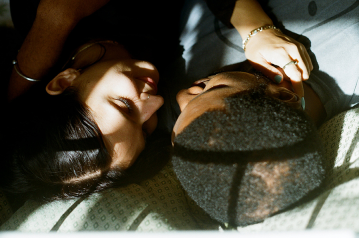Varicocele and fertility: What you need to know about this common condition

When it comes to fertility, sperm health matters — but it’s not always talked about. While fertility conversations often focus on egg quality and menstrual cycles, about 40–50% of infertility cases involve male factors. One of the most common (and treatable) causes? A varicocele.
If you've never heard of it, you're not alone — but knowledge is power, especially when you're trying to grow your family. Here’s what you should know.
What is a varicocele?
A varicocele is a swollen or enlarged vein in the scrotum, kind of like a varicose vein in your leg. It affects about 15% of all people with testicles, and up to 40% of those diagnosed with infertility.
The condition can lead to higher scrotal temperatures and poor blood flow — both of which can mess with sperm production, quality, and function.
How does a varicocele affect fertility?
While some people with a varicocele experience no symptoms at all, in others it can:
- Lower sperm count
- Decrease sperm motility (how well sperm move)
- Increase DNA fragmentation in sperm
- Alter testosterone levels
Not everyone with a varicocele will struggle to conceive — but if you’re trying and not seeing results after a year (or 6 months if you're over 35), it’s worth investigating.
How is a varicocele diagnosed?
The most common way to diagnose a varicocele is through a physical exam during a fertility evaluation. Sometimes, your provider might order a scrotal ultrasound for a more detailed look.
If you’ve had a semen analysis that showed abnormal results — like low count or poor motility — checking for a varicocele might be the next step.
Can it be treated?
Yes. The most common treatment is a minor surgical procedure called a varicocelectomy, where the problematic veins are tied off to redirect blood flow. Recovery is usually quick, and many people see an improvement in sperm parameters within a few months.
However, surgery isn’t always necessary — your doctor will be able to advise on what they feel the best next steps for you are, and why.
What are your options if you have a varicocele?
If you're navigating fertility with a varicocele, you're not out of options. In fact, you’ve got quite a few:
- Watchful waiting: If sperm health is only mildly impacted and you're not in a rush, your doctor might recommend monitoring.
- Surgery: A varicocelectomy can improve sperm quality for many people.
- Assisted reproductive technology (ART): IVF, ICSI (intracytoplasmic sperm injection), or IUI may bypass the issue altogether.
- Lifestyle support: Reducing heat exposure, cutting back on alcohol or smoking, and managing stress can also make a difference.
The bottom line
A varicocele can sound intimidating — but it’s incredibly common, often manageable, and doesn’t mean you can’t have a baby.
At Gaia, we believe fertility care should support both partners. If you or your partner has been diagnosed with a varicocele or is concerned about sperm health, you’re not alone. We’re here to help you understand your options and move forward with peace of mind, understanding and support.
Need support navigating testing, treatment, or financing options?
We’ve got your back — from day one to day baby.




.png)